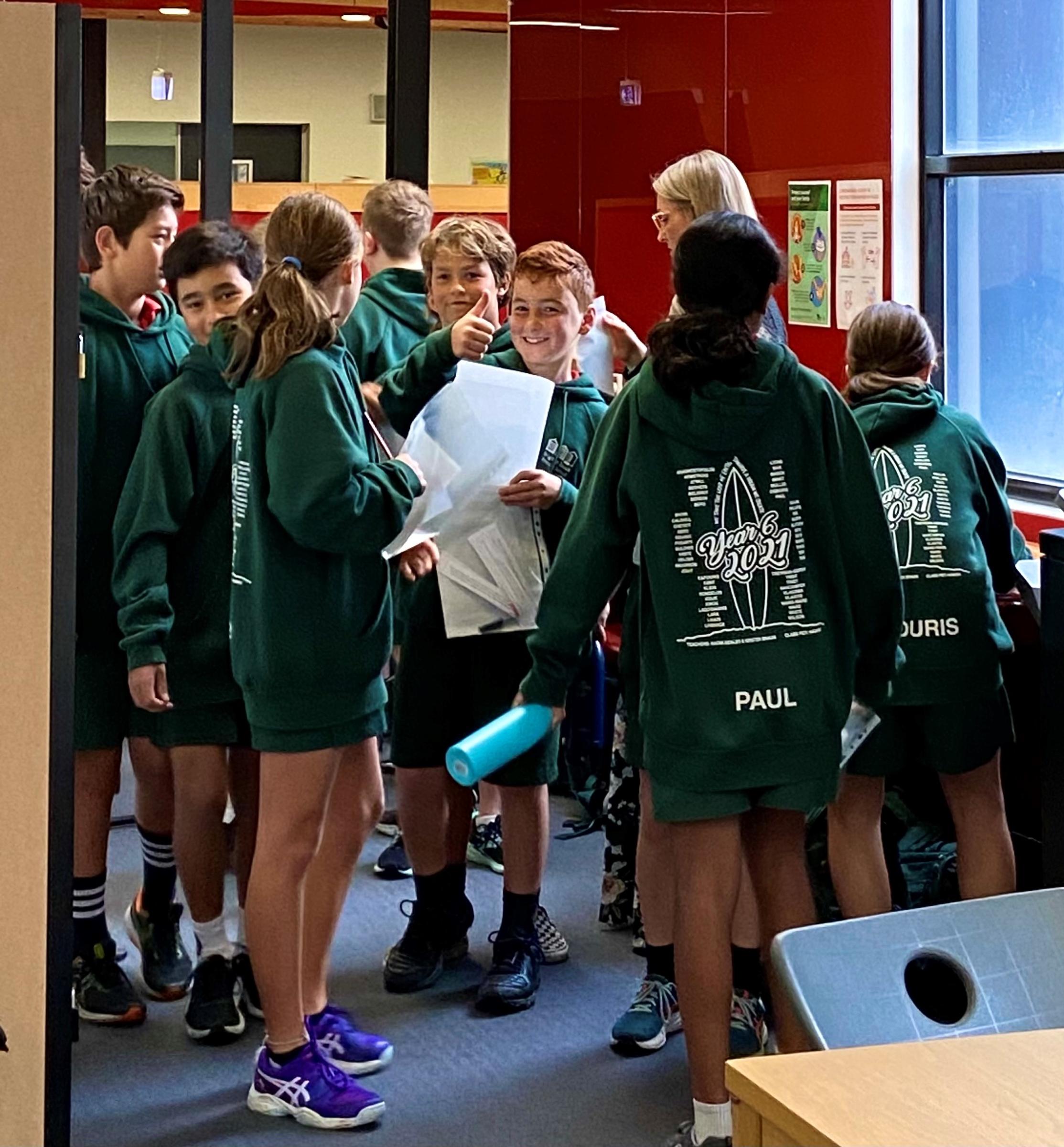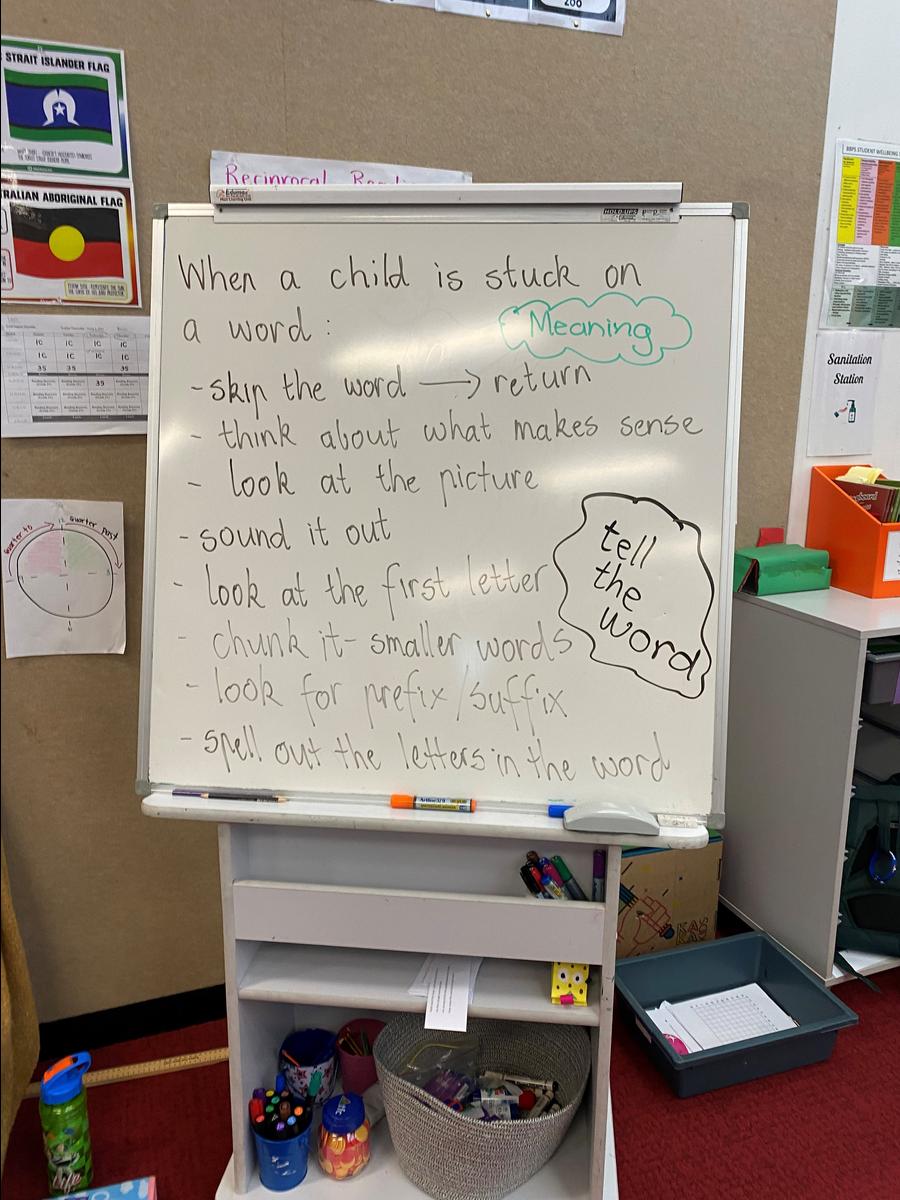What do you do if you get stuck on a word? Julie Shepherd brainstormed a range of strategies to help a student read unfamiliar text.
Parent Tips Talking with your child
Regularly talking and interacting with your child extends their language and listening skills, and helps grow their confidence with language.
Fun activities can include:
- Share rhymes, poems and songs. Encourage your child to join in.
- Share and talk about family histories and family photos.
- Look at picture books or art books. Ask your child to describe what is happening in the pictures and make up stories together.
- Collect cardboard and other household items for your child to build with. Ask your child to describe what they are building.
- Look at ‘junk mail’ and talk about the things for sale.
- Listen to simple radio programs or podcasts together and discuss the content.
- Play vocabulary games with your child such as, “what’s the opposite of ….?” (for example, “what’s the opposite of big?”) and “what’s another word for….?” (for example, “what’s another word for angry?”).
Oral storytelling
Storytelling is a great way to extend your child’s speaking and listening skills, and to expand their memory and imagination. Either you can tell the story, or you can encourage your child to tell the story. Story telling might be about:
- your child’s favourite toy
- another family member
- a pet
- a favourite fictional character from a book or television program
- a famous person
- the work of people from different professions, such as astronauts, firefighters, nurses and teachers
- an imaginary world with imaginary characters
- an imaginary animal that can speak.
Reading together
- Reading together is a valuable thing to do. Reading increases your child’s vocabulary, expands your child’s understanding of the world, and gives them confidence when using language. Reading is also an important way to make the link between spoken words and written words.
Here are some general tips:
- Visit your local library to select and read books together, and to attend story time sessions. Library story time sessions are a great way to share the joy of reading with your child in a group setting.
- Encourage your child to select books, magazines, catalogues, or multimedia stories according to their interests.
- Set aside time for reading every day. Reading before bedtime is a good habit to get into.
- Position yourself so your child can see the words and the pictures.
- Run your finger across the page with each word to help your child identify and remember words and sounds.
- Share wordless picture books to develop imagination, ideas and vocabulary by naming and describing things in pictures.
- Look for rhyme, rhythm or repetition in books. This will help develop your child’s love of language.
- When reading to your child, read stories with expression, or try putting on the voices of characters. This will help make reading fun.
- Point out important features about a book – for example, the words and pictures, the front cover, the spine, the contents page, or the title.
- Explore words using a dictionary.
- Encourage your child to take over some or all of the reading if they feel confident.
- If your child is confident with their reading, allow them to read without interruption. Fluency is gained with confidence. Mistakes can be discussed after a block of reading, or in subsequent readings.
- Allow your child to read at their own pace. Model good pace when you read to them.
- Give your child the opportunity to re-read books.
- Encourage your child to join the Victorian Premiers’ Reading Challenge.
Stay tuned for details from Sophie!


